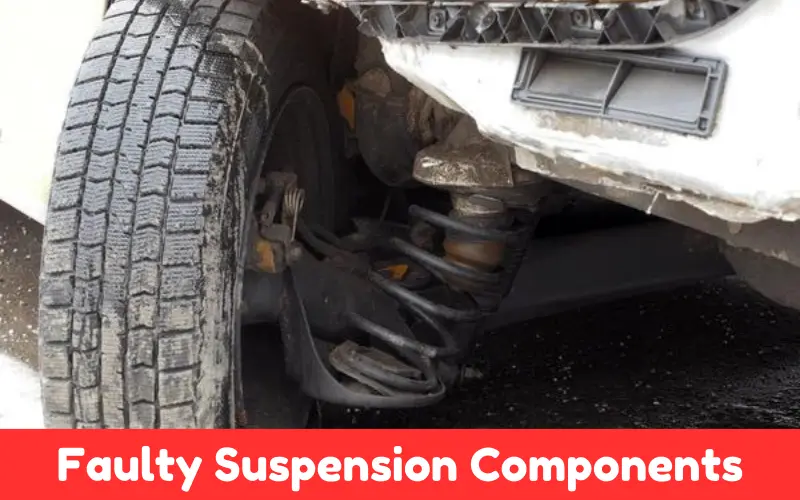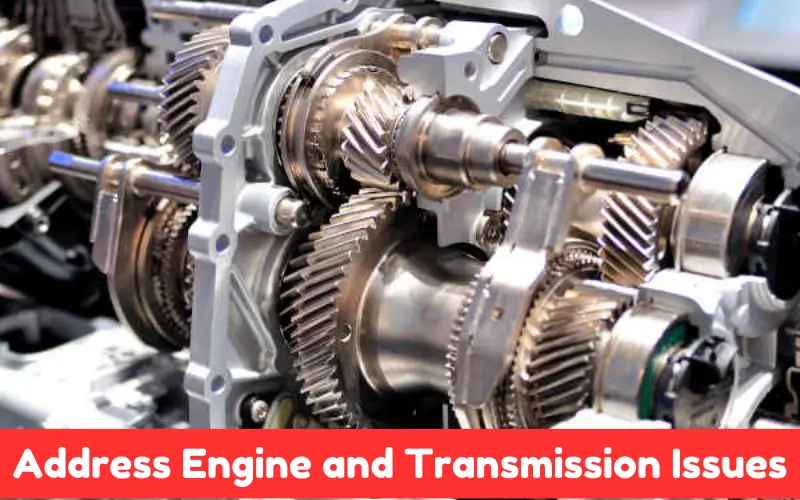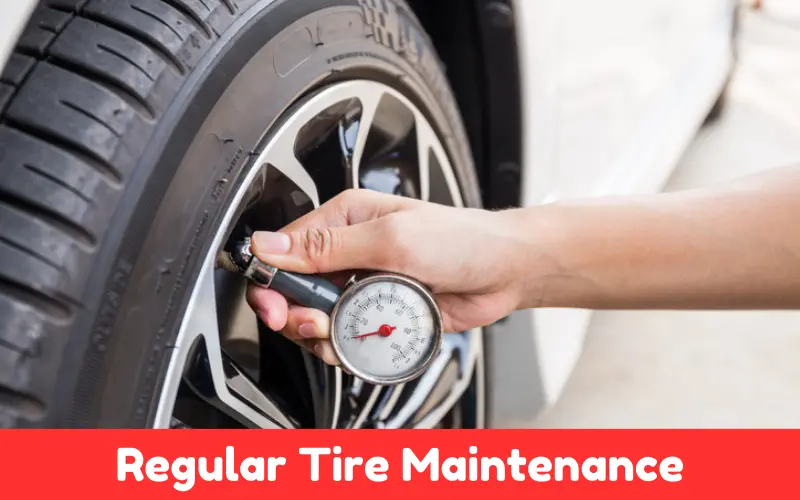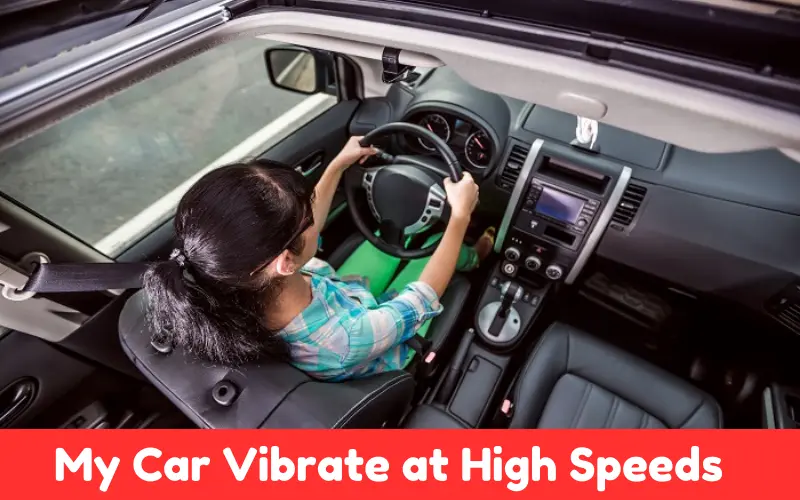If your car vibrates while driving at high speeds, can be unsettling or even annoying. While driving at high speeds, if your car starts shaking or vibrating, you must take timely actions to solve the problem.
We will talk about the common causes of car vibration at high speeds and why does my car vibrate at high speeds?
Article Summary
- Why Does My Car Vibrate at High Speeds?
- How To Fix Car Vibration At High Speeds
- How To Avoid Car Vibrations At High Speeds
- FAQs On Why Does My Car Vibrate at High Speeds
- What Are Signs That My Car’s Vibrations Are Due To an Imbalance?
- How Can I Tell If My Tires Are the Cause of the Vibrations?
- Can Misalignment of Wheels Cause Vibrations at High Speeds?
- How Often Should I Have My Car’s Suspension System Checked?
- What Should I Do If I Suspect My Car’s Engine is Causing Vibrations?
- Conclusion
Why Does My Car Vibrate at High Speeds?
While driving at high speeds your car can vibrate for several reasons. Some of the causes are given below.
1. Imbalanced Wheels
Imbalanced wheels are the most common cause of high speed vibrations. If your wheels are not balanced, you will feel an imbalance in the force pushing against them.
If you have lost the weight on your wheel or debris has become stuck in the wheel itself, you may experience these sensations.
2. Misaligned Wheels
The alignment of wheels is extremely important for comfortable driving. When tires are misaligned, your car pulls to the left or right side, and it vibrates, especially at high speeds. This happens because we drive over potholes or hit curbs.
3. Worn or Damaged Tires
Tires improve car riding. When the time that has passed since the last replacement is too long, or when the tires have worn out and received breakage, the vibrations while driving at high speed tend to be pronounced.
Improvable indicators are whether tires are unevenly worn or have bulges or if a blow-out is seen.
4. Faulty Suspension Components
Your car’s suspension isolates you from the loudest road noise over bumps and potholes while supplying you with the roll stiffness to stay stable in turns and accept all that as you’re bumped by other cars.

If your suspension is busted whether an old shock needs replacing or a part of your strut is broken or worn out then you’ll feel vibrations at higher speeds.
5. Engine or Transmission Issues
Vibrations may also be the result of a problem with the engine or transmission. A vehicle that exhibits shaking that gets worse the faster you drive may have a misfiring engine, loose engine mounts, or a problem with the component of the drivetrain that connects the engine and transmission.
6. Brake Issues
When you’re experiencing vibrations, you might confuse the problem with brake system. This could be if you have air in brake lines and warped brake rotors. You’ll notice this the most when you press on the brakes at high speeds, but it can also affect your handling.
How To Fix Car Vibration At High Speeds
A vibrate car can cause accidents and it also reduces the driving confidence. You should fix the problem as soon as possible. So, some tips for how to fix car vibration at high speeds are listed below.
Check and Balance Your Wheels
Inspect for Visible Damage: Look for any noticeable damage or wear on the tires.
Tire Shop: Have professional mechanics balance your wheels. The best way to balance your wheels is to take your car to an auto repair shop with tire balancing services. The workers will place or adjust your wheel weights using specialized equipment.
Verify Alignment: Also, have them check the alignment while they’re on the lift vibrations could mean the car is misaligned.
Inspect and Replace Worn Tires
Examine Tire Condition: Check for uneven wear, bulges, or cracks on the tires.
Check Tire Pressure: Ensure all tires are inflated to the recommended levels.
Replace as Necessary: Replace worn or damaged tires with new ones that are the same size and specifications as those on your vehicle.
Check and Repair Suspension Components
Visual Inspection: Suspension components such as shocks, struts, and bushings that have obvious damage or deterioration can alert you to an impending issue.
Professional Assessment: Have a qualified mechanic inspect your suspension system for any issues.
Replace Faulty Parts: For any suspension components with damaged or worn components, replace them to ensure correct ride quality.
Address Engine and Transmission Issues
Listen for Unusual Sounds: Listen for knocking sound, pinging, chugging, or unusual vibrations.
Check Engine Mounts: Ensure that the engine mounts are secure and not worn out.
See a Mechanic: If you think the vehicle might be having engine or transmission issues, have it diagnosed and serviced by a mechanic. This could involve replacing engine mounts, fixing misfiring, or servicing the transmission.

Check for Brake Issues
Inspect Brake Rotors: Look for signs of warping or damage on the brake rotors.
Tap the Brakes: If you sense vibrations, that might mean your rotors are warped, or there’s another issue with your brakes.
Go to a Brake Specialist: Have your brakes checked, repaired, and replaced. Your vibrations will go away! Replacing rotors that are warped due to abuse or otherwise damaged brake parts will fix your shakes.
Address Any Other Underlying Issues
Inspect for Loose Parts: Check for any loose or damaged components underneath the vehicle.
Call a Mechanic: If there’s still vibration after addressing the areas above, call a pro and have them look for other potential causes.
How To Avoid Car Vibrations At High Speeds
Avoiding car vibrations at high speeds is crucial for maintaining both comfort and safety during your drives. Here are some steps you can take to prevent or minimize these vibrations:
Regular Tire Maintenance
Take your vehicle in regularly for tire maintenance checks to ensure the tires are properly inflated, have enough tread to be safe, and look for signs of damage or wear.
Tire Pressure: Use a tire gauge to keep tires inflated to the manufacturer’s specs.

Inspect for Damage: Regularly examine your tires for any bulges, cuts, or uneven wear.
Rotate Tires: Rotate your tires every 6,000 to 8,000 miles to ensure even wear.
Get Routine Wheel Alignments
Every three or four months, one should have the wheels aligned. This helps to ensure good handling and prevent shaking when hitting bumps due to misalignment.
Schedule Alignments: Have the alignment checked every 12,000 to 15,000 miles or when a car pulls to one side.
Check Your Monitor: Whenever there is a problem with steering assist or handling, get your shape checked right away.
Maintain the Suspension System
It’s important to keep your suspension system in good condition so as not to face unpleasant shocks with vibrations from worn-out parts and for a pleasant ride.
Inspection Regular: Inspect your suspension once a year or more if you notice any strange noises or handling problems.
Replace Worn Parts: Replace worn or damaged shocks, struts, or bushings quickly to keep your ride feeling good.
Address Engine and Transmission Issues Early
Proactively managing engine and transmission health can prevent vibrations caused by mechanical problems.
Regular Maintenance: Do oil changes, filter replacements, and other basic maintenance as directed by your vehicle’s maintenance manual.
Keep an Eye on Performance: Be alert for any changes in engine performance (rough idling, slipping gears) and get any such problems repaired right away.
FAQs On Why Does My Car Vibrate at High Speeds
What Are Signs That My Car’s Vibrations Are Due To an Imbalance?
If your car has a wheel or fitment balance issue, it will vibrate predominantly at speed (usually above 50 to 60 mph). The vibration will feel as though it’s coming from the wheels, often in a rhythmic pattern, and in most cases, the steering wheel will shake, too. The shimmy will generally worsen as the speed increases.
How Can I Tell If My Tires Are the Cause of the Vibrations?
Evidence that the tires or the wheel rims have been damaged clearly shows up as bulges or cuts, while uneven tire or wheel rim wear could give rise to vibration. A quick test can usually be located by simply taking the car for a slow drive alongside a curb. If the wheels are close to or out of round and don’t roll at precisely the same rate, a small vibration will be experienced. Checking your tire pressure and tread depth on a regular basis will help you spot this.
Can Misalignment of Wheels Cause Vibrations at High Speeds?
Yes, your tires would vibrate at high speeds if they are misaligned. The reason for this is that your wheels don’t track in the same place on the road. It’s similar to riding a bicycle with both wheels pointing in different directions. Eventually, your tires would wear out unevenly, and you might feel a vibration in the steering wheel. The car would also try to pull to one side.
How Often Should I Have My Car’s Suspension System Checked?
The suspension system should be inspected at least once a year (more often if any problems are detected, such as noise, vibration, poor ride, etc.) and is an area perfectly suited to routine maintenance in order to catch small problems before they turn into big ones.
What Should I Do If I Suspect My Car’s Engine is Causing Vibrations?
If you think that vibrations are a sign of an engine fault or a problem with the transmission, you really need to get it looked at ASAP. A professional will be able to run a full diagnostic check to identify the cause and to recommend any remedial work that’s needed to keep you on the road in all safety.
Conclusion
High speed vibrations should not be underestimated. The problem should be solved as soon as it is diagnosed and the vehicle is safe and performing.
Keeping the vehicle in good maintenance has helped a lot in preventing some issues, like repairing them on time and purchasing them in the good times.

